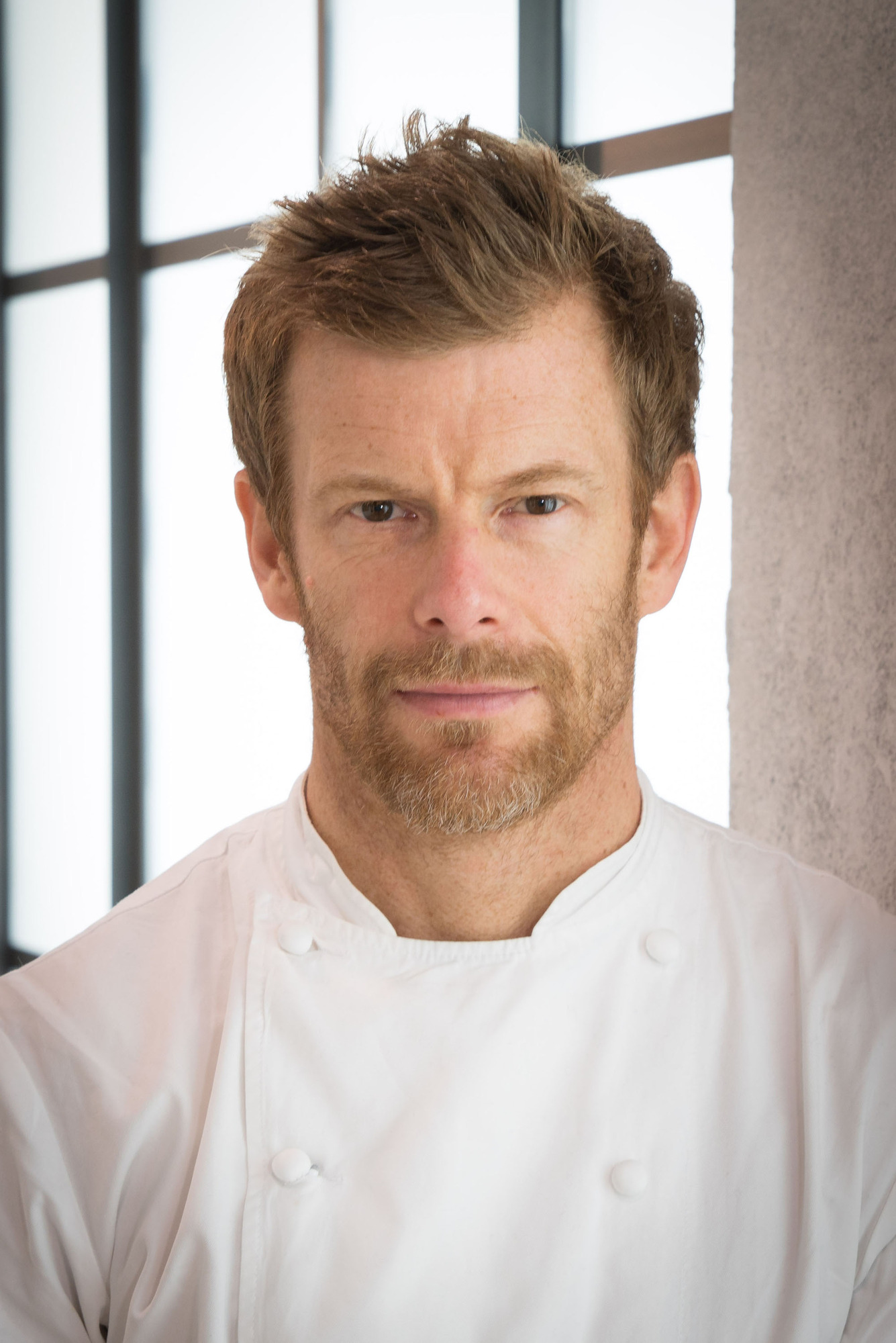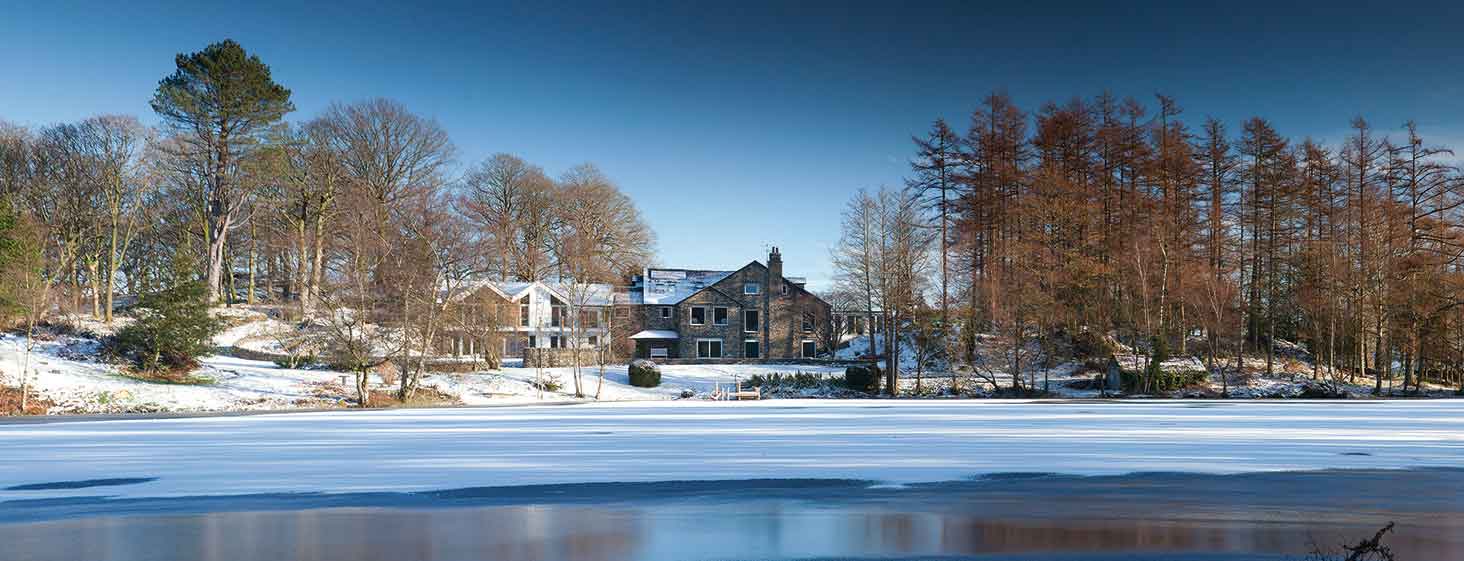The Great British Menu 2019 North West heat kicks off on BBC 2 on Wednesday 10th April at 8pm, featuring chefs Liam Simpson-Trotman, Hrishikesh Desai and Adam Reid.
We asked what it was like to take part in the competition, now in its fourteenth edition. This week's contestants will be judged by Michelin-starred veteran chef Tom Aikens. Two of them will make it to the judge's table on Friday, where Matthew Fort, Oliver Peyton and Andi Oliver will be joined by singer-songwriter Amy MacDonald.
Hrishikesh Desai is the executive chef at The Gilpin Hotel and Lake House in Windermere, Lake District and the holder of a Michelin star since 2016. He is also a Roux Scholar, won the Craft Guild's National Chef of the Year in 2010, and trained under such names as Hywel Jones and Thomas Keller. The chef earned a Michelin Star within a year of taking over at The Gilpin.
Raised in the Indian state of Maharashtra, Hrishikesh decided to become a chef during a visit to France, when he witnessed a crème brûlée being blowtorched.
Initially, the chef trained to work the front of house, but his mastery of the French language earned him a scholarship to train at the Institut Paul Bocuse in Lyon, and rather than pursue his front of house studies, he decided to stay on and train as a chef.
His food is influenced not just by Indian cuisine and his French classical training, but also Thai and Chinese food, using ingredients sourced far and wide - starting at the heart of Cumbria, where The Gilpin Hotel is located.
 It was your first time on GBM wasn’t it? What did you think?+3
It was your first time on GBM wasn’t it? What did you think?+3
Yeah it was. I didn’t know what to expect, having watched the previous series, but I thought it was great.
What was it like to meet Adam Reid and Liam Simpson-Trotman?
It was quite surprising. Knowing that both of them had been on the competition, I knew it was going to be tough, but we gelled really fast. As the competition progressed we became good friends.
Liam was incredible. I don’t know how it will be shown when it airs, but the way he talked about his starter, 'Banging Beets', made me chuckle. He asked me, ‘what are you laughing about?’ and it was just the way he said it.
We really enjoyed each others’ company; it’s a brilliant thing about the competition that chefs can come together and experience the same sorts of feelings. This year many have commented that chefs have helped each other and not slagged each other off; it goes to show how the industry has changed.
Was it a little bit daunting to be judged by Tom Aikens?
Yes it was. When I put my application through and submitted all my recipes, for some reason, in my heart, I felt it would be Tom Aikens. To have him as a judge was unbelievable. He’s a very hard man to please. But I think that with the quality of food that we made, we won him over with our first course.
Image: celebrity veteran chef Tom Aikens. Credit: BBC Pictures
After that, it was more of a guidance; I learned a lot from him. I understood why he’s so highly regarded. Everything he was telling us to do made complete sense.
Can you talk me through the inspiration behind your dishes?
The first dish, ‘Old is Gold’, was all about celebrating old school media, tape recorders, magnetic cassettes, the gramophone and celebrating the time in the fifties and sixties when Britain established authority on good music.
I took inspiration from devils’ scallops and made a dish with chilli and ginger to add a hint of spice.
The second one was called 'Curry and Wok', and the reason behind that was that I had a chance to teach Mr Nick Mason, Pink Floyd's drummer, how to cook.
It was quite amazing: we were doing an Indian Street Food course and I gave him chopsticks for kebabs and the way he held them and turned them in his hand – it was so cool.
He was the definition of cool for me, I’ve never seen a celebrity of such a high status who’s achieved so much and was totally cool about it.
He was telling me that the rock bands survived on tour around the US eating curry, they would track down the spiciest curries and they had a chart of honour for the person who could eat them. He said Fleetwood Mac was one of them.
That inspired my salmon dish, cooked slowly in a water bath served with spicy tomato and an aubergine masala.
The third course was Kendall Calling - to honour music festivals in Britain. They’re integral to British music and this one supports small musicians that aren’t household names, different charities; it’s more like a hospitality industry event.
It takes place in Lowther Deer Park; it’s beautiful, there’s a castle around it with deer roaming free, eating all the food, so I decided to use venison. The idea was that a band is a minimum of four people. One is a guitarist, a drummer, a bassist and a person on the keyboard, so my main course had four elements.
The last one was called ‘And the Winner is’. I took inspiration from the Beatles song ‘Let it Be’. The idea was, whatever the difficulties in your life, you have to let it be.
The way I constructed that pudding was like a trophy. The winner is the support staff, the dancers, they are all the winners in this industry, so it was based on a chocolate dessert; chocolate leaves, peanut parfait and raspberry flavours; lots of tiny musical notes and a trophy.
 +3
+3
Image: The Gilpin Hotel and Lake House, Windermere, Lake District
Which of your dishes did you most want to take the the banquet when you started in the competition?
Probably the pudding. There were 13 different elements involved. The chef did say that I was biting off more than I could chew, but there were a lot of skill elements in it.
Overall, would you say GBM is a competition worth taking part in?
Yes, it is. It showcases your skills as a chef, but it also depends on how much you want to tell the nation who you are, where you work and the sort of food you like to cook. Ideally, a chef should be able to decide when they take part, they should be ready for it rather than take part just for the sake of it.


 It was your first time on GBM wasn’t it? What did you think?
It was your first time on GBM wasn’t it? What did you think?













There are no comments yet.
You could be commenting on this if you had an account! Click here to sign up.